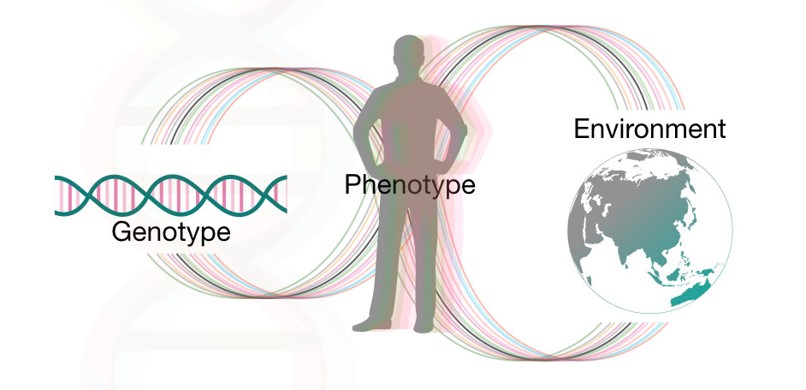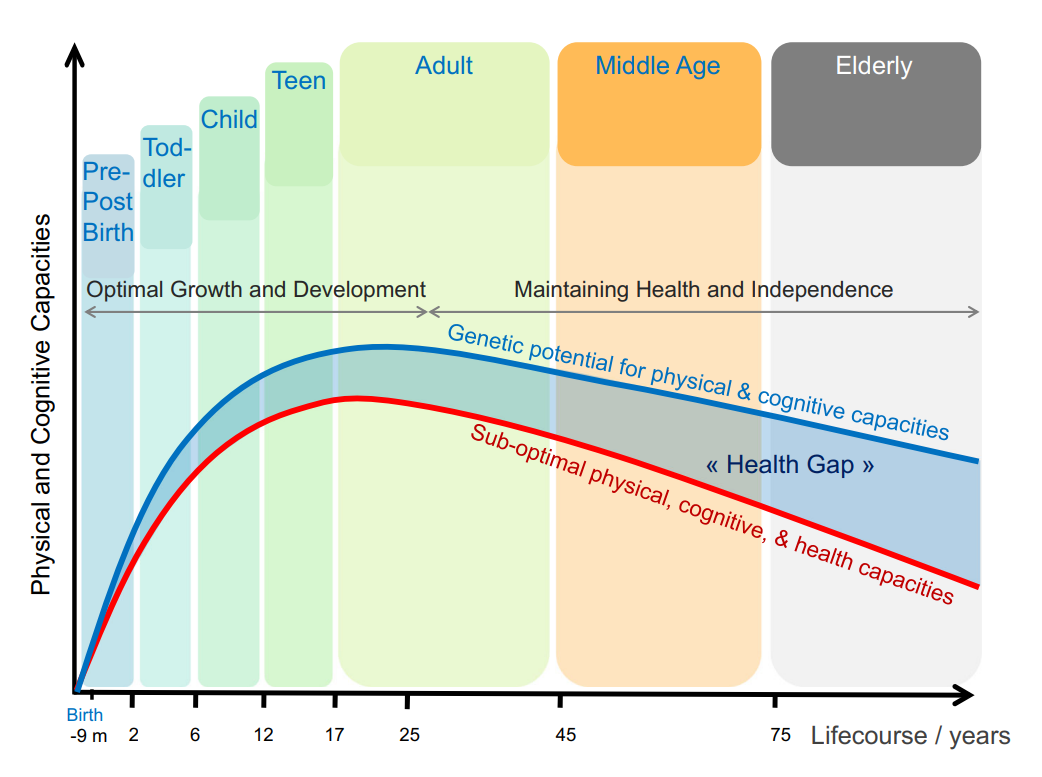
Maher M, Pooler A, Kaput J, Kussmann M. Appl. Transl. Genomics 2016 (3): “A systems approach to personalised nutrition: report on the Keystone Symposium - Human Nutrition, Environment and Health”.

Kaput J, Kussmann M, Mendoza Y, Le Coutre R, Cooper K, Roulin A; Genes & Nutrition 2015 (10) 12: “Enabling nutrient security and sustainability through systems research”.
Over the last century, humanity has achieved an unprecedented success in extending human life expectancy despite a concomitant steep growth of the global population. Life expectancy has substantially increased thanks to reduced infant mortality, but also because of prolonged life span. This in turn can be largely attributed to healthier nutrition, access to clean water, better hygiene, higher education, and improved working conditions. More calories are available today to a higher percentage of the world’s population than at any time in human history. Yet, about 800 million people are undernourished resulting in wasting and stunting, two billion lack essential nutrients, and two billion suffer from over-nutrition resulting in excess weight or obesity.
The spectrum of human health conditions, such as metabolic, immune, and gastrointestinal disorders, to name prominent nutritionally actionable conditions, but also cognitive decline, has changed with prolonged human life span, which should be matched with an appropriately extended health span: we should not only be "adding years to life" but also "adding life to years”. An unmet requirement for assessing how to improve human health, however, is the basic knowledge of how to define health. That is, health cannot be maintained or improved, e.g. by enhancing nutrition quality, without an adequate definition of what health means for individuals and populations. Defining and measuring health therefore becomes a critical objective for basic nutritional and other biomedical sciences.
Both acute and chronic diseases are associated and/or influenced by nutrient intake. Rising healthcare costs warrant increased efforts in preventing the onset, reducing the severity, and delaying the outcome of disease by improving nutritional health across life stages. Targeting unmet nutritional needs in the general population, as well as distinct nutritional requirements linked to individual susceptibility to various conditions, is becoming increasingly important and urgent. Nutrition, targeted to population subgroups and individuals, can improve public and personal health and support Precision Medicine for disease treatment and prevention by considering individual variability in genes, environment, and lifestyle.